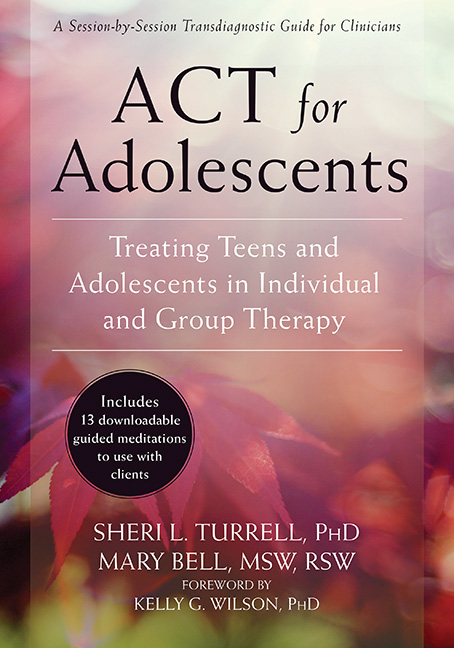Although teenagers may seem like they are totally absorbed in their video games, sports, or movies, they notice what’s going on around them. Teens are curious about the adult world, and are often eager to take steps toward it. During adolescence and puberty, anything related to sex is sure to catch their attention. Teens struggle with questions of identity and values and seek role models. Our culture and popular media provide endless opportunities to present issues surrounding sex, often in the form of celebrity gossip. The processes underlying Acceptance and Commitment Therapy (ACT) can help therapists and parents open a dialogue about sexualized media content while modeling mutual respect. So, how can we talk with teens about all this?
A useful place to begin is with awareness, noticing your own reactions. When a sex-related news story blasts into your kitchen in the middle of breakfast, or your client starts off a session talking about recent sexual scandals in the media, take note of your own reaction before you engage in the conversation. Take a moment to notice your own private experience as you hear about the news item: be aware of your thoughts, feelings, and physical sensations, however difficult, contradictory, or disturbing they are.
Then let your own internal reactions have some space inside while you gently get some distance from your thoughts and feelings. Bring in awareness of your values (in the context of ACT) as a therapist or parent, and focus on who and what matters to you.
Approach your teen with an attitude of compassion and curiosity. Allow them the freedom to share their perspective without “fixing” it (or them).
Adolescence is characterized by an increase in reasoning ability, which might look like arguing or jumping to conclusions. If you have an urge to jump in and make corrections, notice this urge, make room for it, and try to just listen. If this is difficult, remembering your values as the adult in your teens’ life may be helpful to keep you on track.
Be prepared that teens may have a different perspective than you do—and your own attitudes and behavior may come under scrutiny. Model openness to their ideas and perspectives, and be prepared for the possibility that they have just discovered you have biases you were not aware of. After all, your growing up context has shaped who you are, and a different context is shaping who they are.
Your growing up context has shaped who you are, and a different context is shaping who they are.
Moral development is occurring during adolescence, so these media stories provide an opportunity to lay the groundwork for prosocial learning. Engage teens in perspective taking, and highlight compassion and fairness. With patience and sensitivity, you can create an atmosphere that helps them connect with prosocial values and encourages them to ask questions, identify what matters to them, and engage over time in values-based behavior.
These processes give us an opportunity to reconnect with our own values and adjust our behavior in light of new perspectives.
 Sheri Turrell, PhD, and Mary Bell, MSW, RSW, are authors of ACT for Adolescents. Dr. Turrell is a clinical psychologist and collaborates with Mary Bell on studies of group-based ACT.
Sheri Turrell, PhD, and Mary Bell, MSW, RSW, are authors of ACT for Adolescents. Dr. Turrell is a clinical psychologist and collaborates with Mary Bell on studies of group-based ACT.
Want more tools on mental health and wellness? Sign up for our mailing list.


 2024 Peace Playbook: 3 Tactics to Avoid Clashes with Your Partner
2024 Peace Playbook: 3 Tactics to Avoid Clashes with Your Partner